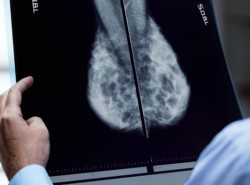
Designing new nanotechnologies to target and eradicate breast cancer by engaging the immune system
Published: 10/9/19 1:48 AM
Phil Darcy
The importance of the immune system in breast cancer is increasingly being recognised and a large body of evidence shows that breast cancer patients with high levels of immune cells within the tumour have a good prognosis following standard treatments.
However, in the majority of patients, the immune system is unable to recognise and attack the tumour. This is largely due to the overabundance of a particular population of white blood cells called regulatory T cells (Tregs), which are expanded to unnaturally high numbers by the tumour cells to suppress the immune system and promote tumour growth.
Previous studies have shown that depletion of Tregs in mice dramatically enhances the therapeutic effectiveness of standard cancer treatments such as radiotherapy and chemotherapy. However, it remains impossible to reproduce this effect in patients due to the lack of effective agents able to deplete human Tregs.
This project will develop a novel nanotechnology, called liposomes, to selectively deplete human Tregs and evaluate its therapeutic potential.
These liposomes contain drugs which induce the death of target cells. The liposomes ensure drugs are delivered specifically to target cells (i.e. Tregs) because they are coated with proteins (antibodies) which specifically bind to cell surface proteins expressed only on the target cell.
The team will then assess whether the treatment has inhibited primary tumour growth as well as prevented metastatic spread of the tumour, a vital outcome for patients.
The project also includes investigating another complementary approach using antibody-directed liposomes that can manipulate the “master switch” required for Treg function, and reprogram Tregs from pro-tumour into anti-tumour cells.
This project is the first time this nanotechnology targeting Tregs will be attempted and if successful it could be readily available to breast cancer patients.
